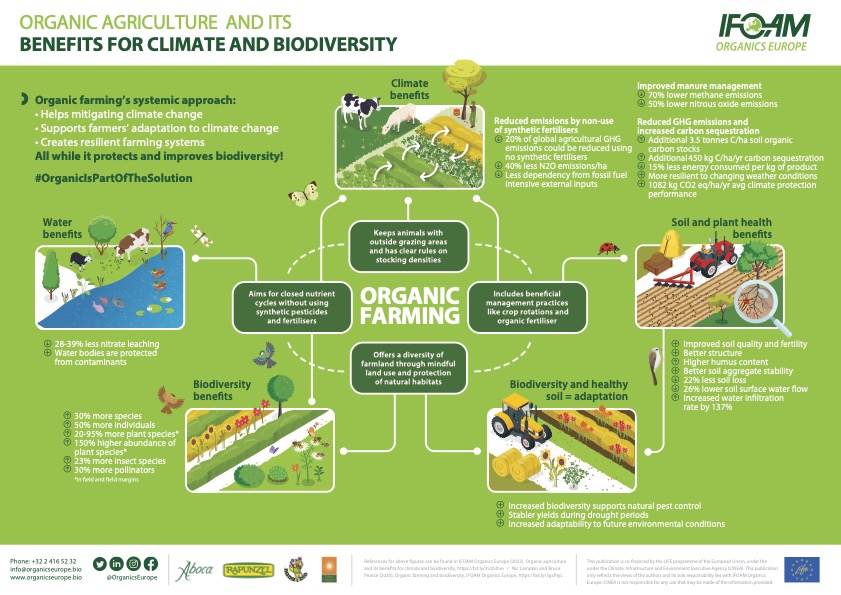Organic benefits for climate and biodiversity
The systemic approach of organic farming contributes to climate mitigation, supports the adaptation of farmers to the consequences of climate change and increases the resilience of farming systems, while protecting and enhancing biodiversity.
Common practices in organic farming, such as crop rotations and using organic fertiliser, and the fact that organic farmers refrain from using synthetic pesticides and fertilizers, lead among other benefits to:
- An average climate protection performance of 1082 kg CO2 eq/ha/year
- Additional sequestration of 450 kg Carbon/ha/year
- 28-39% less nitrate leaching
- 30% more species and pollinators
- soil loss is reduced by 22% and soil surface water flow by 26%
- 40% less N2O emissions/ha
Find this and many other benefits of organic agriculture for climate and biodiversity at one glance in our new infographic, available in the following languages: [EN] [UA] [CZ] [FR]

In alternative, you can explore our cut-out infographics focusing on the benefits of organic agriculture in specific areas.






